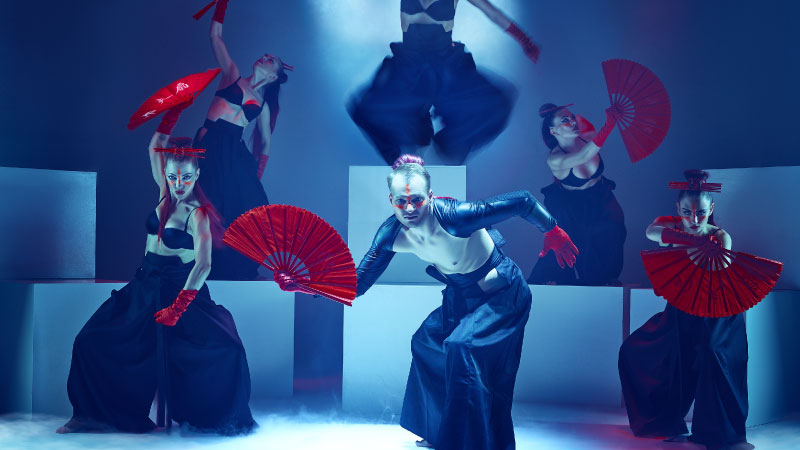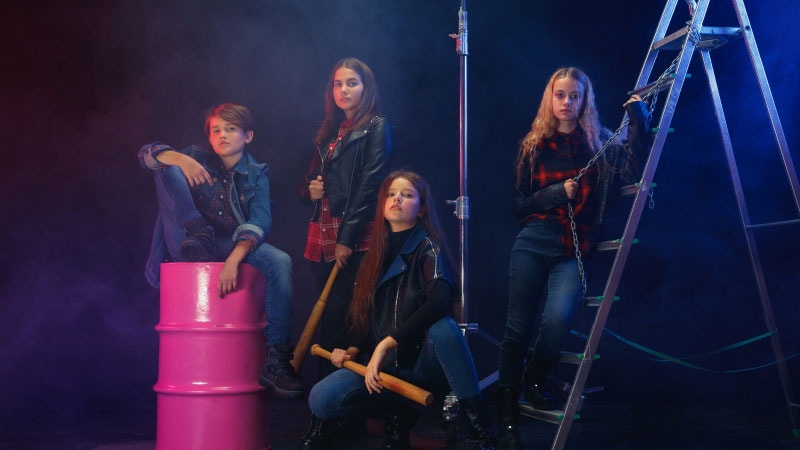Talent shows have captured the imaginations of audiences around the world, showcasing a range of performances from singers, dancers, and comedians to magicians, acrobats, and unique acts that push creative boundaries. With so many formats and themes, these competitions provide a platform for individuals to display their talents and, for some, change their lives. Here, we’ll explore the phenomenon of talent shows, the different types, their histories, and the impact they’ve had on entertainment and popular culture.

History and Origins of Talent Shows
The concept of talent shows is not new; it can be traced back to the early 20th century when vaudeville stages became popular. Vaudeville allowed performers of all kinds to demonstrate their skills in front of live audiences, leading to talent discovery. Radio and television later embraced the idea, with shows like The Original Amateur Hour in the 1940s and The Gong Show in the 1970s. These pioneering talent competitions introduced the idea of public entertainment competitions to a broader audience.
However, the format exploded in the 2000s with American Idol in the U.S., followed by The X Factor, America’s Got Talent, and other global franchises. These shows brought the idea of competition combined with audience voting, allowing viewers to be actively involved in deciding winners. This era also marked a shift toward reality TV-style production, where contestants’ backstories were as important as their performances.
Popular Talent Show Categories
Talent shows today have diversified to the point where practically every skill and art form can find a platform. Here are some of the major types of talent shows:
- Singing Competitions
- Shows like American Idol, The Voice, and The X Factor are built around discovering singing talent. These competitions have produced international stars like Kelly Clarkson, Carrie Underwood, and One Direction.
- These shows also introduced unique formats, such as The Voice, where celebrity judges choose contestants based solely on their voice, not their appearance.
- Dance Competitions
- Dance shows such as So You Think You Can Dance, Dancing with the Stars, and World of Dance showcase talented dancers across a variety of styles.
- They provide a platform for solo dancers, duos, and even large groups, highlighting both individual and collaborative talent.
- Variety Talent Shows
- Shows like America’s Got Talent (AGT) and Britain’s Got Talent (BGT) are variety talent shows that welcome any and all acts.
- These shows are known for featuring unique performers, from ventriloquists and magicians to acrobats and comedians. AGT has also discovered crossover acts that became global sensations, such as ventriloquist Darci Lynne and singer Susan Boyle.
- Stand-Up Comedy Competitions
- Stand-up comedy shows like Last Comic Standing and Comic Relief cater specifically to comedians.
- Comedy talent shows have helped launch the careers of now-famous comedians who bring laughter to homes around the world, highlighting humor’s role in entertainment.
- Cooking Competitions
- While cooking shows are not traditional “talent shows,” they are a form of skill-based competition. Shows like MasterChef, Top Chef, and The Great British Bake Off challenge chefs to create culinary masterpieces under pressure.
- These shows have broadened the scope of talent competitions by focusing on specialized skills beyond singing and dancing.
- Extreme Talent and Adventure Shows
- Shows like Ninja Warrior and Fear Factor take talent competitions into physical realms, where contestants demonstrate strength, endurance, and courage.
- Such competitions add the thrill of overcoming challenging obstacles or daring stunts, which appeals to an audience looking for high-stakes entertainment.
- Beauty Pageants and Modeling Competitions
- Although they are structured differently, beauty pageants like Miss Universe and modeling competitions such as America’s Next Top Model focus on grooming and discovering beauty and modeling talent.
- These shows have brought modeling and beauty standards into public discussions and influenced the fashion industry significantly.

Global Reach of Talent Shows
Talent shows are now global phenomena, with franchises expanding to nearly every country. This worldwide reach has enabled local talent to gain international recognition. For instance, Got Talent, Idol, and The Voice are among the most syndicated shows, with versions in over 50 countries. International versions of talent shows provide exposure to diverse cultural acts, enriching the global entertainment scene.
The Impact of Talent Shows on Social Media and Streaming
Social media platforms like YouTube, Instagram, and TikTok have transformed the talent show experience. Clips from popular acts often go viral, reaching millions of viewers who may not have watched the live broadcast. Viral performances like Susan Boyle’s audition for Britain’s Got Talent or Grace VanderWaal’s ukulele performance on America’s Got Talent are examples of acts that gained widespread popularity and helped propel the shows to greater visibility.
Streaming services like Netflix and Hulu have also contributed to the longevity of talent shows. For example, Netflix’s Rhythm + Flow, a rap competition featuring Chance the Rapper and Cardi B, reached new audiences globally. Streaming allows viewers to access these shows at any time, creating a more flexible, global fan base.
The Cultural Impact of Talent Shows
Talent shows influence popular culture significantly, shaping trends in music, dance, fashion, and more. Contestants who become successful inspire future participants, contributing to an ever-evolving culture of performance arts. These shows also serve as platforms for inspiring stories, from contestants overcoming personal struggles to achieving their dreams against all odds.
Moreover, talent shows have brought discussions about diversity and inclusivity to the forefront. Audiences often respond positively to contestants who represent underrepresented communities, and many shows actively work to reflect diversity.

Challenges and Criticisms
While talent shows are wildly popular, they are not without criticism. Common concerns include:
- Pressure and Stress on Contestants: The competitive nature and high expectations can be stressful, especially for young participants. Some argue that the psychological pressure on contestants is too intense.
- Manipulation for Ratings: Some shows have been criticized for focusing more on drama and emotional backstories than on actual talent, prioritizing ratings over fair competition.
- Limited Career Longevity: While talent shows can launch careers, not all winners find long-term success. Many contestants struggle to sustain their initial fame once the show ends.
Despite these issues, talent shows continue to evolve, aiming to address these criticisms while keeping audiences entertained.

Talent shows are a unique blend of competition, entertainment, and talent discovery, offering participants a platform to showcase their abilities while providing audiences with inspiring stories and memorable performances. Whether in singing, dancing, comedy, or even cooking, talent shows have a lasting impact on the entertainment industry, launching careers and creating unforgettable moments that resonate with people across generations and cultures. As the genre continues to evolve with advances in technology and audience expectations, talent shows are likely to remain a staple of entertainment, inspiring countless aspiring performers to pursue their dreams on a global stage.



